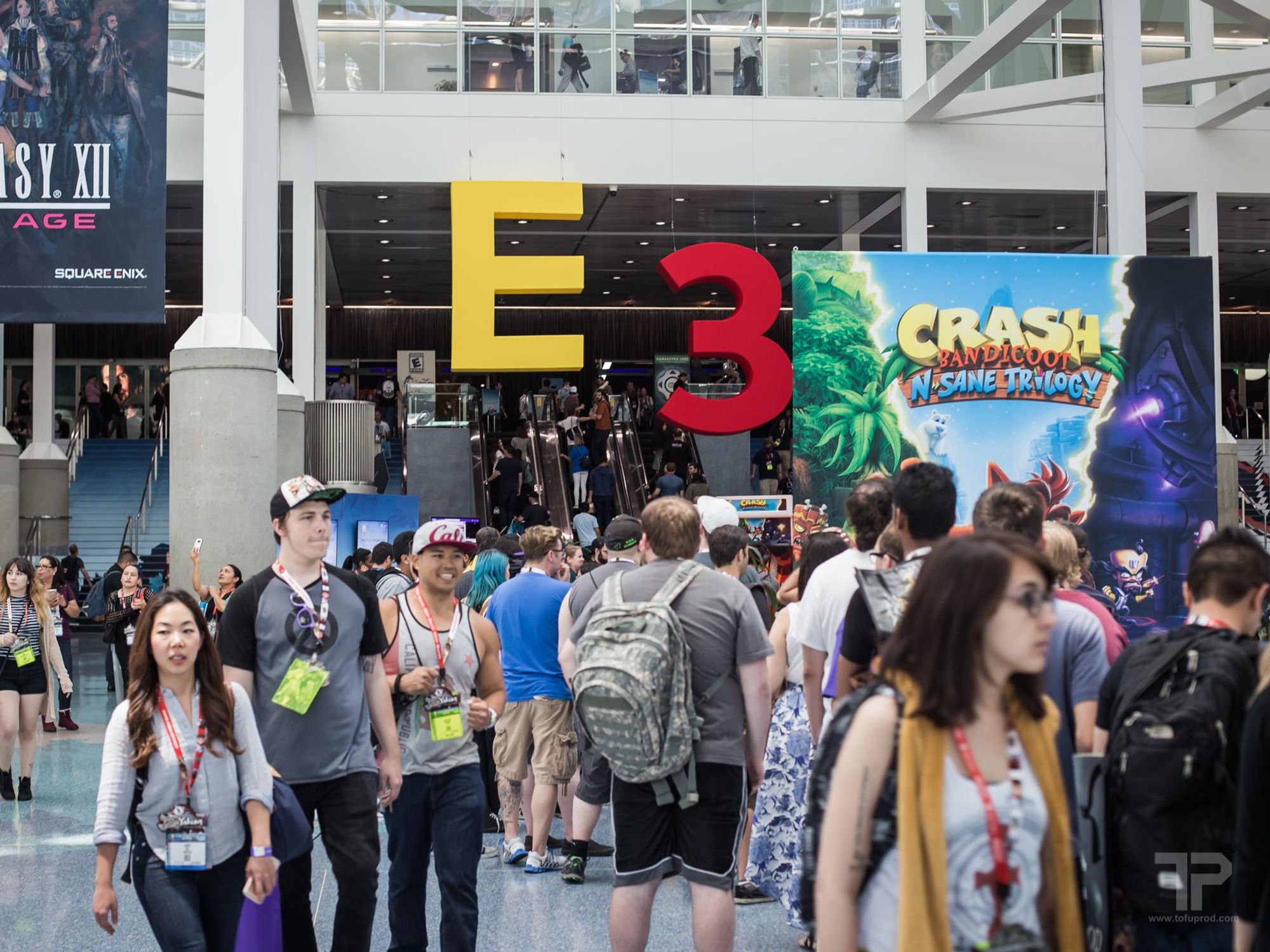Industry Expert’s Advice to E3: To Succeed, Drop the Trade Show Persona
Samson Amore is a reporter for dot.LA. He holds a degree in journalism from Emerson College. Send tips or pitches to samsonamore@dot.la and find him on Twitter @Samsonamore.

The trade group Entertainment Software Association, which runs the annual E3 video game conference in Los Angeles, is having an identity crisis.
The conference has taken some major hits since its debut in 1995 as a can’t-miss trade show for fans to buy games even before the coronavirus pandemic. COVID prompted E3 to shut down its 2020 event, run an online-only show in 2021 and nix the gathering again this year – but even prior to the COVID-19 outbreak fans were wondering just what value E3 had anymore.
Now the ESA is betting that a new organizer can help turn the tide and get fans back in the doors of the Los Angeles Convention Center next year. But it has its work cut out for it.
ReedPop executive Kyle Marsden-Kish said in a statement last week, “E3 2023 will be recognizably epic—a return to form that honors what's always worked—while reshaping what didn't and setting a new benchmark for video game expos in 2023 and beyond.”
But the main issue is that the video game industry just doesn’t need trade shows anymore – at least, not to sell games. Prof. Danny Bilson, a games executive who worked at EA Games and THQ and now chairs USC’s Interactive Media and Games division, told dot.LA the fans just don’t want to go to an event that’s still geared towards businesses when they can buy titles online.
Bilson’s been attending E3 since not long after its inception and said there was a distinct difference in the show’s vibe early on.
“I thought those shows were so much fun and I loved seeing all the new products and seeing friends and going booth to booth and playing games, all that stuff was really a blast,” Bilson said. “But when digital distribution became prevalent, and free-to-play became more prevalent and indie [games] became a thing, there's not really much exclusivity to E3 anymore.”
Bilson’s right – now that the internet occupies a much more ubiquitous place in society than the late 90s, the need for trade shows to premiere exclusive gameplay footage or sell games directly to fans is obsolete.
This became even clearer several years ago when big publishers like Nintendo, Sony and Bilson’s former employer EA all decided to swap pricey show booths for their own, mainly online, reveal events.
“All that fragmentation ultimately kills it and the message gets diluted, but it just needs clear direction,'' Bilson said. “And then it probably needs profitability.”
“I don't have to drag myself down there, I can have a better experience online [now],” Bilson added.
Bilson said that if E3 is to reinvent itself it should look to mimic Gamescom, a European fan show that’ll be held in Germany later this month. He noted that ReedPop, which has experience running fan-centric shows like New York Comic-Con and the PAX events, will likely have valuable input for the ESA on how to transform from a trade show to a fan showcase.
The show should still have a remote component, but rely more on the in-person presence, Bilson suggested, noting it could be “a giant interconnected community event with a physical base in LA.”
“I would make it the giant World’s Fair of games for fans,” Bilson quipped. “It should be a fan event with real announcements that make it valuable,” he said, adding that he doesn’t think “every publisher has to do that big stage show” in order for fans to get excited.
Bilson also noted E3’s going to compete even more with Geoff Keighley’s Summer Games Fest, which is planning an expansion into physical events next year after experimenting with free-to-play demo popups this year.
“[E3] is irrelevant because it was still a trade show and a trade show is irrelevant,” Bilson said. “Everything's an Insta story, people are on phones constantly through the experience, that's just key to the whole thing and you can gamify that, and these fans are all about that. If you do some real cool gamification to the experience, that’s what I think modern events should be.”
Samson Amore is a reporter for dot.LA. He holds a degree in journalism from Emerson College. Send tips or pitches to samsonamore@dot.la and find him on Twitter @Samsonamore.





 Image Source: Tinder
Image Source: Tinder Image Source: Apple
Image Source: Apple